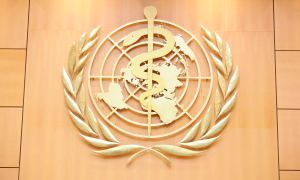 Tobacco control leaders from around the globe will be presented with the latest findings of the World Health Organization (WHO) on e-cigarettes and public health at a meeting in India this November.
Tobacco control leaders from around the globe will be presented with the latest findings of the World Health Organization (WHO) on e-cigarettes and public health at a meeting in India this November.
The seventh Conference of the Parties to the Framework Convention on Tobacco Control (FCTC) – generally known as COP7 – will take place in Delhi from 7th to 12th November, and may issue recommendations on e-cigarette regulation after hearing the WHO’s views.
On the agenda, under the heading “control and prevention of globally emerging products”, is the presentation of a report by the WHO that the last meeting, COP6, requested in 2014.
That report is expected to be published before the Delhi conference, most likely during September.
Both the FCTC and the broader WHO, the international body under whose aegis it stands, have become notorious for their sceptical attitude toward e-cigarettes.
The COP6 meeting suggested that member countries, which include nearly all major nations with the notable exception of the U.S., should consider a regulatory repertoire that could include restrictions on vaping in public places, advertising bans, or even complete prohibition of e-cigarettes and similar products.
What This Means: FCTC recommendations are not necessarily binding on members, but they – and WHO attitudes – have a strong influence on policy. This is especially true in the developing world, and is undoubtedly one reason why India (for example) is cracking down so hard on e-cigs; and even in other countries it adds considerable weight to arguments for tight regulation.
We wrote in 2014 that “there is no escaping the fact that [COP6] is encouraging governments to approach [e-cigarettes] with grave suspicion”, and given the tenor of the WHO’s attitude toward vaping – infused by loathing of combustible tobacco and its history – we suspect we will be writing much the same this November.
– Barnaby Page ECigIntelligence staff
Photo: U.S. mission, Geneva






